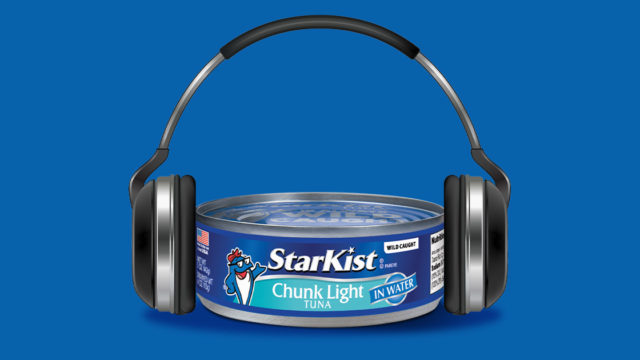Introducing the Adweek Podcast Network. Access infinite inspiration in your pocket on everything from career advice and creativity to metaverse marketing and more. Browse all podcasts.
Twitter’s self-described “Complaint Hotline Operator,” Elon Musk, hosted a Twitter Spaces Wednesday afternoon in an effort to allay advertiser concerns about brand safety and ad relevancy.
Brands including Paramount, eBay, Walgreens, Honda and Ford joined the audio conversation along with about 100,000 others.
Advertisers are increasingly concerned about Musk’s definition of free speech and how that can collide with their brand messaging. Musk told the brands his $8 subscription plan, which includes verification, will solving for these concerns. His argument? That a paying user wouldn’t dare break the rules for fear of losing their verification.
“If someone tries to impersonate a brand, their account will be suspended and we will keep their $8,” Musk said.
Maybe this is a dumb decision, but we’ll see.
Elon Musk, Twitter CEO
Not all advertisers are satisfied with this argument. Lou Paskalis, an advertising industry veteran who has held top roles at Bank of America and American Express, said political operatives and foreign actors who spend billions on advertising and could have an interest in spreading harmful misinformation would not be deterred by the prospect of paying $8 a month.
“I don’t think his model is fully baked,” Paskalis told Adweek. “I don’t think it will demote hate speech and it will create headwinds for advertisers.”
The public meeting followed internal meetings Musk held with agencies last week, which also left some advertisers with more questions than answers. This time, Musk still gave limited information on issues such as content moderation, brand safety and how a subscription model would affect advertisers.
Tools to curb hate speech and misinformation
On the call, Musk maintained the platform’s content moderation policies haven’t changed. While he urged the attendees to observe how events play out on Twitter, he reaffirmed rigorously clamping down on bad content, bots and trolls.
Twitter’s head of safety & integrity, Yoel Roth said that the platform has actually gotten safer since Musk took over, citing a stat that the level of hateful activity on Twitter is 95% lower than it was before the acquisition.
However, Tuesday’s midterm elections showed otherwise. The New York Times dug into the Twitter data and found 40,000 tweets about malfunctioning voting machines in Arizona which promoted election misinformation narratives across the platform for much of the night.
Meanwhile, Roth spoke about new tools being built to curb the spread of misinformation and harmful content without having to ban people. These include frameworks like warning messages, interstitials and tools to limit reach. Musk sees a “mild paywall” as another solution.
“Maybe this is a dumb decision, but we’ll see,” said the world’s richest man.
According to Paskalis, Musk seems to fundamentally misunderstand the concerns of advertisers, focusing on brand safety as an issue of ad adjacency.
“The issue isn’t adjacency. Does Twitter allow hate speech on the platform?,” he asked, noting these assurances require a much higher bar than simply ensuring brands aren’t next to harmful content.
If things go wrong, it’s my fault. The buck stops with me
Elon Musk, Twitter CEO
Robin Wheeler, Twitter’s vp of US client solutions, kicked off the 59-minute call. The 10-year Twitter veteran asked Musk about how advertising fits into the platform’s subscription model. While Musk was light on details, a recent update to Twitter’s app in the iOS store noted that Twitter Blue subscribers will see half the ad load of non-subscribers.
On the call, Musk encouraged brands to continue using Twitter, whether through advertising on the platform and via their own accounts. While some brands have paused spend, others have dramatically pared down the use of their Twitter accounts using it primarily for the most basic functions like answering customer concerns, said Amy Gilbert, of social agency The Social Element.
“There has been some adjustment for all our clients,” said Gilbert.
Gilbert said that since marketers also rely on Twitter for social listening if more users are behind a paywall a whole swath of valuable data could be lost.
Future of brand, its identity, and representation
Interactive Advertising Bureau CEO David Cohen, who was present on the call, probed Musk’s plan of action to address a brand’s bottom-funnel marketing goals, including relevance, brand safety and measurement.
“We’ve probably not been great on any of them,” said Musk. “We’re terrible at relevance.”
To address this, Twitter plans to integrate ads into recommended tweets. This needs to be on one software stack, according to Musk. Last week, the platform downsized to a single software from three different software groups.
“The relevance of recommended tweets is much better than the relevance of the ads because they’re two different engines,” Musk said.
Meanwhile, Twitter’s new content moderation council will take a few more months to come together. The team will weigh in on account suspension decisions, according to Musk.
“I’m the chief twit here, so the responsibility is mine,” he said to the thousands of people listening live, which grew to 1.2 million by late Wednesday. “If things go wrong, it’s my fault. The buck stops with me.”
https://www.adweek.com/media/elon-musk-believes-twitter-paywall-will-solve-advertisers-brand-safety-concerns/


